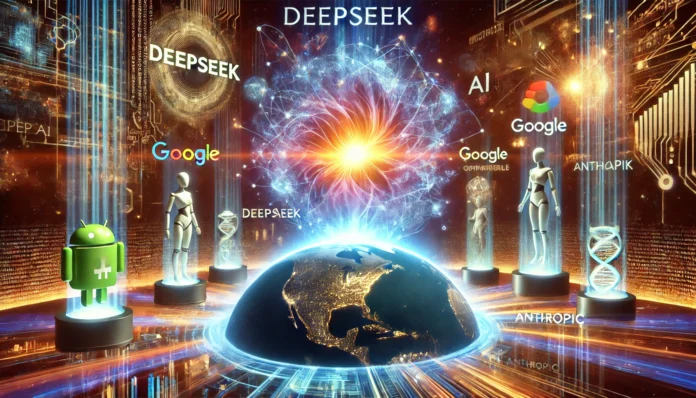In a stunning development that has sent ripples through the AI community, Chinese AI startup DeepSeek unveiled a significant upgrade to its large language model, DeepSeek-V3-0324, on April 14, 2025. This release, announced on the AI development platform Hugging Face, positions DeepSeek as a formidable rival to industry giants like OpenAI, Google, and Anthropic, intensifying the global race for AI supremacy. With claims of superior reasoning and coding capabilities at a fraction of the cost, DeepSeek’s latest model is redefining what’s possible in generative AI—and raising eyebrows about the future of the industry.
Founded in 2023 by entrepreneur Liang Wenfeng, DeepSeek has quickly emerged as a powerhouse in AI innovation. The company’s V3-0324 model builds on its predecessor, DeepSeek-V3, with what the startup describes as “significant improvements” in benchmark performance. Early reports indicate the model excels in tasks requiring complex reasoning, such as mathematical problem-solving and software development, while maintaining a lean cost structure—an estimated $6 million to develop, compared to the billions spent by Western competitors like OpenAI. This cost-efficiency has sparked debates about whether DeepSeek’s approach could disrupt the high-stakes, high-budget AI landscape.
The timing of DeepSeek’s release couldn’t be more critical. Just days ago, posts on X highlighted a whirlwind of AI advancements, including OpenAI’s phase-out of GPT-4.5 and Google’s rollout of Gemini 2.5 Pro with enhanced reasoning capabilities. Yet, DeepSeek’s announcement stole the spotlight, with tech analysts praising its open-source ethos and accessibility. “This is a game-changer,” said Nina Singer, a machine learning scientist quoted in recent coverage. “DeepSeek’s reliance on open-source foundations like Alibaba’s Qwen allows smaller players to compete with the giants.”
The implications extend far beyond technical benchmarks. DeepSeek’s rise underscores China’s growing influence in AI, fueled by massive investments—Alibaba alone pledged $53 billion for AI infrastructure over the next three years. However, the startup’s rapid ascent hasn’t been without controversy. Concerns linger about data privacy and the geopolitical ramifications of China’s AI ambitions, especially given U.S. restrictions on chip exports that DeepSeek’s founder navigated by stockpiling Nvidia processors in 2021.
From a business perspective, DeepSeek’s model is a boon for startups and developers. Its cost-effective design makes advanced AI accessible to smaller firms, potentially democratizing innovation in fields like robotics, healthcare, and education. Yet, skeptics warn of risks. Regulatory uncertainties around AI ethics—particularly algorithmic bias and transparency—could complicate DeepSeek’s global expansion. As one Forbes article noted, “The legal landscape for AI is still evolving, and new laws could reshape the playing field.”
The buzz around DeepSeek also reignites philosophical debates about AI’s trajectory. Can cost-efficient models like V3-0324 deliver the same societal value as their pricier counterparts? And what does it mean for jobs and creativity when AI becomes this accessible? These questions are fueling discussions on platforms like X, where users are both excited and wary of AI’s accelerating pace.
As the dust settles, one thing is clear: DeepSeek’s V3-0324 has redefined the stakes in the AI race. Whether it’s a flashpoint for innovation or a cautionary tale of unchecked ambition, this breakthrough demands attention. For now, the world is watching—and coding—alongside DeepSeek.




